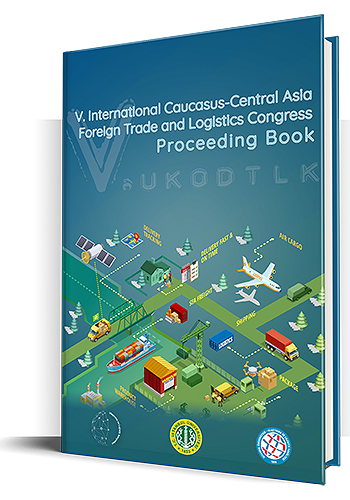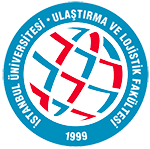
Ulaştırma ve Lojistik Kongreleri
- Türkçe
- Tam Metin
- 2019
Afet Lojistiği Performansı ve Afete Müdahale Performansı Arasındaki İlişkinin Belirlenmesi: Bir Uygulama
Orhan Küçük
Prof. Dr., Kastamonu Üniversitesi, Kastamonu, Türkiye
Nurten Küçük
Öğr. Gör., Kastamonu Üniversitesi, Kastamonu, Türkiye
Serkan Dilek
Doç. Dr., Kastamonu Üniversitesi, Kastamonu, Türkiye
Ülkemizde afetler geçmişte yaşanmış, gelecekte de bir şekilde yaşanabileceği öngörülmektedir. O yüzden afetlere karşı hazırlıklı olunmalı, afet riskleri dikkate alınarak yerleşim yerleri planlanmalı ve binalar inşa edilmeli, afetlerle bir arada yaşamak öğrenilmelidir. Afet lojistiği ise; İnsanların baş edemeyecekleri şekilde hayatın işleyişine zarar veren olaylara (Afet) muhatap olanlara yapılacak müdahalelerde, ulaşım, konaklama, ihtiyaç malzemelerinin stoklanması ve dağıtımı ile afetzedelerin hastane ve başka yerleşim yerlerine götürülmeleri, yaşama aktivitelerine devam edebilmelerine ilişkin uygulamaların, bilgi paylaşımı ile birlikte planlanlı ve koordineli bir biçimde gerçekleştirilmesidir. Afete müdahalenin hızı, kapsamı ve normalleşme süreci afete müdahale performansı olarak ele alınmaktadır. Afete müdahale ederken lojistik unsurların performansı afetlerin en az zararla atlatılmasına katkı sağlayacak ögeler olarak ifade edilebilir. Bu bakımdan lojistik performansı ile afete müdahale performansı ilişkisinin ortaya konması önem arz etmektedir. Bu çalışmanın amacı; lojistik performansı ile afete müdahale performansı arasındaki ilişkiyi ortaya koymaktır. Bu amaçla, sorumlu yazar tarafından geliştirilen Küçük vd. (2016) ölçek kullanılarak afet lojistiği ve afete müdahale lojistiği performans faktörlerinin önem düzeyi ve bu değişkenler arasındaki ilişkinin araştırılacaktır. Araştırma sonucunda, zamana bağlı olarak afete müdahalede bir iyileşmenin yaşanıp yaşanmadığı, afet lojistiği ve afete müdahale performans faktörlerinin önem düzeyleri belirlenecek, ilgililere belli öneriler paylaşılabilecektir.
Anahtar Kelimeler: Lojistik Performansı, Afet Lojistiği, Afete Müdahale Performansı
Determining the Relationship Between Disaster Logistics Performance and Disaster Response Performance: An Application in TR 82
Disasters in our country have been experienced in the past and it is envisaged that they may be experienced in the future in some way. Therefore, we should be prepared against disasters, planning settlements and building buildings should be taken into account the risks of disasters, and living together with disasters should be learned. Disaster logistics is the planned and coordinated implementation of the procedures related to transportation, accommodation, stockpiling and distribution of needed materials and transportation of disaster victims to hospitals and other settlements in order to ensure that they can continue their life activities in a way that people cannot cope with. The speed, scope and normalization process of disaster response are treated as disaster response performance. The performance of logistical elements when responding to a disaster can be expressed as elements that will contribute to avoiding disasters with minimal damage. In this respect, it is important to establish the relationship between logistics performance and Disaster Response Performance. The aim of this study is to demonstrate the relationship between logistics performance and Disaster Response Performance. To this end, using scale, developed by the responsible author et al.,. (2016) the importance level of performance factors in disaster logistics and disaster response logistics and the relationship between personnel performance and these variables will be investigated. As a result of the research, the importance levels of disaster logistics and Disaster Response performance factors will be determined, depending on time whether an improvement in disaster response has been experienced, and specific recommendations will be shared to the concerned persons.
Keywords: Disaster logistics Performance, disaster logistics, Disaster Response Performance, personnel performance

V. International Caucasus-Central Asia Foreign Trade and Logistics Congress Proceeding Book
E-ISBN:
Sayfa: 237-244

Bu çalışma, kullanan kişilere orjinal çalışmadan alıntı yaptıkları sürece, çalışmayı dağıtma, değiştirme ve üzerine çalışma hakkı tanıyan Attribution 4.0 International (CC BY 4.0) lisansı ile lisanslanmıştır.
İletişim
İstanbul Üniversitesi Ulaştırma ve Lojistik Fakültesi
İ.Ü. Avcılar Kampüsü 34320 Avcılar/İstanbul
ulk@istanbul.edu.tr
+ 90 (212) 440 00 00 - 19200


